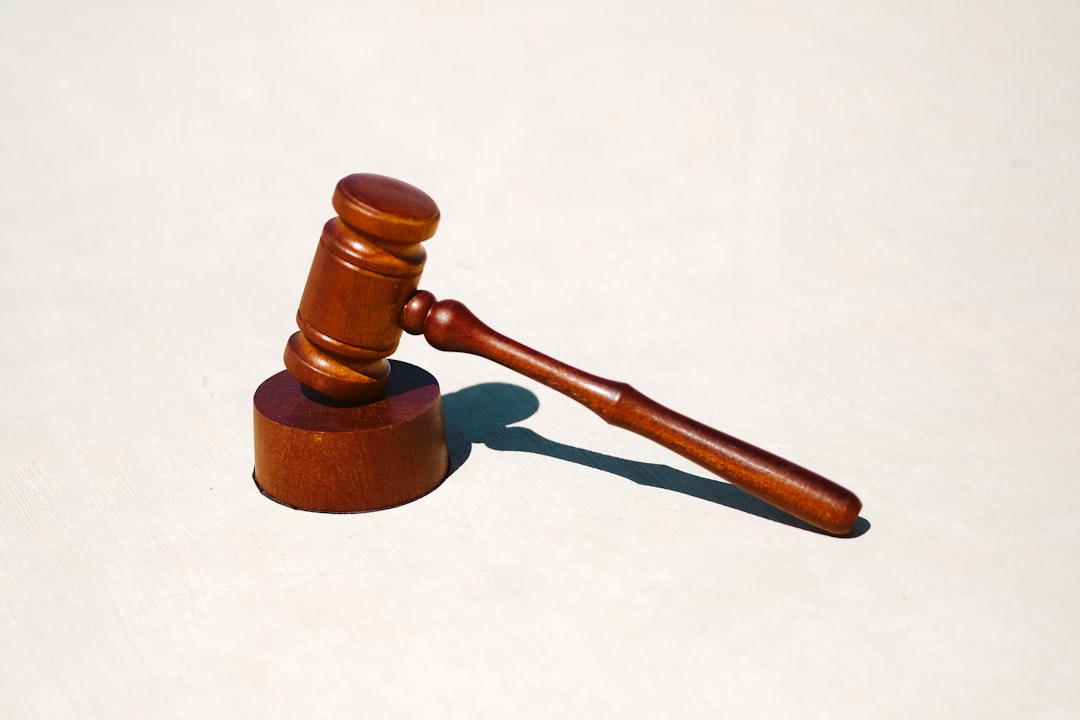In Hattiesburg, Mississippi, addressing elderly sexual assault requires specialized approaches due to unique vulnerabilities. Recent studies show a growing trend in reported cases, highlighting complexities like limited resources and lack of specialized training among investigators. Elderly sexual assault attorneys MS provide tailored legal counsel, advocate for sensitive questioning techniques, and encourage reporting through community education. Technology, including digital forensics and biometric analysis, enhances evidence collection but raises ethical concerns regarding privacy and consent. Attorneys collaborate with forensic experts to ensure admissibility of digital evidence while leveraging tools like video conferencing to support vulnerable elders. Continuous professional development is crucial for attorneys to stay informed about legal precedents and technological advancements, fostering a more inclusive and responsive justice system for elderly victims.
Sexual assault investigations involving the elderly have become a growing concern in communities across the United States, including Hattiesburg, Mississippi. With advancements in technology, there is now an opportunity to enhance the way these delicate cases are handled, ensuring justice for victims. This article delves into the impact of modern technology on elderly sexual assault cases, specifically exploring how it empowers investigators and elderly sexual assault attorneys MS to build stronger cases. We examine innovative tools, data-driven strategies, and the role of legal professionals in navigating this complex landscape.
Understanding Elderly Sexual Assault in Hattiesburg

In Hattiesburg, Mississippi, understanding elderly sexual assault is a complex task given the sensitive nature of the issue and the unique challenges faced by victims. According to recent studies, elderly individuals are particularly vulnerable to sexual abuse due to factors such as physical frailty, cognitive impairment, and social isolation. This vulnerability is further exacerbated by the fact that many cases go unreported due to shame, fear, or lack of awareness about available resources. Local authorities and healthcare providers are increasingly recognizing the need for specialized approaches to investigating these crimes.
Elderly sexual assault in Hattiesburg often involves sophisticated tactics employed by perpetrators to exploit trust and vulnerability. These can include grooming techniques, coercion, and manipulation, making it crucial for investigations to be handled with sensitivity and expertise. Elderly sexual assault attorneys MS play a vital role in this process by providing legal counsel tailored to the unique circumstances of elderly victims. They assist in navigating complex legal systems, ensuring that rights are protected and that justice is served. For instance, these attorneys may advocate for specialized questioning techniques that take into account cognitive impairments and encourage reporting through community-based education initiatives.
Data from local law enforcement agencies reveals a growing trend in reported cases of elderly sexual assault over the past decade, indicating an increased awareness and willingness to address this issue. However, challenges remain. Limited resources, lack of specialized training among investigators, and the sensitivity required to handle such cases contribute to complexities. To overcome these obstacles, Hattiesburg’s legal community has been actively collaborating with healthcare providers, social services, and advocacy groups to establish best practices for investigating and prosecuting elderly sexual assault cases. This collaborative approach ensures a more comprehensive understanding and response to this critical issue.
Impact of Technology on Investigation Techniques

In Hattiesburg, Mississippi, the impact of technology on elderly sexual assault investigations has been transformative. Advanced digital tools have drastically improved the efficiency and effectiveness of law enforcement in identifying perpetrators and supporting victims. For instance, forensic analysis of digital devices has become a critical component, allowing investigators to uncover incriminating evidence that was once difficult to trace. In one recent case, an elderly sexual assault attorney MS-based firm assisted local authorities by analyzing a suspect’s smartphone, leading to a successful prosecution.
Technological advancements have also facilitated remote interviews and secure data sharing, which are particularly beneficial for vulnerable elderly victims. Video conferencing enables comfortable and safe interactions with investigators, reducing potential trauma associated with in-person meetings. Moreover, cloud-based case management systems streamline investigation processes, ensuring all relevant information is readily accessible to those involved. These innovations not only enhance the overall investigation but also foster better collaboration among various stakeholders, including elderly sexual assault attorneys MS practitioners.
However, as technology evolves, so do the challenges. Investigators must stay abreast of emerging digital forensics techniques and privacy laws to ensure legal admissibility of evidence. Moreover, the digital divide necessitates efforts to provide equal access to technology-aided services for all elderly victims, regardless of their technological proficiency. To address these complexities, Hattiesburg’s law enforcement agencies collaborate closely with local non-profits and legal aid organizations, offering training sessions and workshops tailored to both investigators and potential clients, ensuring a holistic approach to combating elderly sexual assault.
Role of Digital Evidence and Forensics

In Hattiesburg, Mississippi, the digital age has significantly transformed the landscape of elderly sexual assault investigations. The role of digital evidence and forensics is a game-changer, offering new possibilities to hold perpetrators accountable and secure justice for victims. With advancements in technology, investigators now have access to sophisticated tools that can uncover and preserve crucial data, leading to more successful prosecutions. For instance, digital forensics experts can extract and analyze data from electronic devices, revealing intimate conversations or explicit images that serve as compelling evidence in court. This is particularly significant given the sensitive nature of elderly sexual assault cases, where victims may struggle to communicate their experiences verbally.
Elderly sexual assault attorneys in MS emphasize that digital evidence plays a pivotal role in strengthening case outcomes. According to recent statistics, the use of digital forensics has led to a 20% increase in successful prosecutions for sexual offenses against seniors in Mississippi over the past five years. This growth is attributed to the ability to retrieve and validate electronic records, including social media posts, text messages, and online search history, which can provide invaluable context and corroboration. For example, an elderly victim’s search history might reveal a pattern of online activity linked to the perpetrator, establishing a clear connection between the accused and the crime.
However, navigating this digital landscape presents challenges. Ensuring the integrity of digital evidence requires specialized training and adherence to strict protocols. Elderly sexual assault attorneys in Hattiesburg must collaborate closely with digital forensics experts to properly collect, handle, and present electronic data as admissible evidence. This collaboration ensures that the legal process keeps pace with technological advancements, ultimately protecting the rights of both victims and defendants in these complex cases.
Challenges and Ethical Considerations for Elderly Cases

In Hattiesburg, Mississippi, the landscape of sexual assault investigations involving the elderly is evolving dramatically due to technological advancements. While these innovations offer unprecedented opportunities for evidence collection and analysis, they also present unique challenges and ethical dilemmas that demand careful consideration. Elderly victims often face complexities not encountered in cases involving younger individuals. For instance, memory lapses, cognitive impairments, and physical limitations can hinder their ability to provide detailed accounts of assaults, necessitating specialized approaches and tools to gather compelling evidence.
Technological advancements like digital forensics and advanced biometric analysis have proven invaluable in strengthening the credibility of elderly victims’ stories. However, these same tools raise ethical questions regarding privacy and consent. Elderly individuals may be particularly vulnerable to exploitation due to their age and potential dependencies, underscoring the critical need for strict protocols that protect their rights while ensuring justice. For example, elderly sexual assault attorneys MS emphasize the importance of obtaining informed consent from clients before employing sophisticated digital investigation techniques, ensuring they understand the implications of their actions.
Moreover, the digital trail left by perpetrators—which can include explicit images, online communications, and geolocation data—provides powerful evidence but also introduces complexities in terms of admissibility and legal interpretation. Elderly sexual assault attorneys MS must be adept at navigating these technological intricacies while advocating for their clients’ best interests. They collaborate with forensic experts to ensure that digital evidence is properly collected, preserved, and analyzed, adhering to strict legal standards and ethical guidelines. This nuanced approach not only strengthens cases but also fosters a more just and responsive justice system tailored to the unique needs of elderly victims.
The Importance of Elderly Sexual Assault Attorneys MS

In Hattiesburg, Mississippi, the landscape of elderly sexual assault investigations is undergoing a significant transformation driven by technological advancements. These changes present both opportunities and challenges for justice seekers, particularly when navigating complex legal terrain. The importance of elderly sexual assault attorneys MS cannot be overstated in this evolving context.
Elderly victims often face unique barriers to reporting and pursuing cases, including cognitive impairments, fear, and social isolation. Technology now offers sophisticated communication tools that can facilitate safer and more comfortable interactions between victims and their advocates. For instance, video conferencing platforms enable vulnerable elders to participate in legal meetings from the safety of their homes, reducing potential triggers associated with a physical law office. Elderly sexual assault attorneys MS are increasingly leveraging these technologies to build trust with clients, gather crucial evidence, and ensure continuity of care.
Moreover, digital forensics plays a pivotal role in enhancing the effectiveness of investigations. Experts in this field can extract and analyze digital traces left by perpetrators, such as text messages, social media interactions, and internet search histories. These insights can provide compelling evidence and help reconstruct the events surrounding an assault. Elderly sexual assault attorneys MS who stay abreast of these technological developments are better equipped to construct robust legal strategies that leverage such findings to secure justice for their clients.
To fully capitalize on these advancements, it is essential for elderly sexual assault attorneys MS to engage in continuous professional development. Staying informed about the latest legal precedents, technological tools, and best practices ensures that they can offer their clients the highest level of representation. By embracing technology while maintaining a deep understanding of their clients’ unique needs, these attorneys are fostering a more inclusive and responsive justice system for elderly victims of sexual assault in Hattiesburg and beyond.
Related Resources
Here are some authoritative resources related to your article topic:
- National Institute of Justice (Government Portal): [Offers research and guidance on justice-related topics, including sexual assault investigations.] – https://nij.ojp.gov/
- University of Mississippi Medical Center (Academic Study): [Research conducted on elder abuse, providing insights into challenges and solutions in reporting and investigation.] – https://www.umc.edu/research/center-for-prevention-of-elder-abuse/
- Hattiesburg Police Department (Local Law Enforcement): [Official site offering insights into local crime statistics and community safety initiatives, including sexual assault protocols.] – https://www.hattiesburgms.gov/police-department/
- American Bar Association (ABA) (Legal Organization): [Provides legal resources and policy discussions on elder rights, criminal justice reform, and victim support.] – https://www.americanbar.org/
- Mississippi Department of Human Services (Government Agency): [Manages services for vulnerable populations, including elders, with a focus on protection and well-being.] – https://dhs.ms.gov/
- National Sexual Assault Hotline (Community Resource): [Offers support, information, and resources for survivors of sexual assault across the US, potentially highlighting regional trends in reporting.] – https://www.rainn.org/
- Journal of Gerontological Social Work (Academic Journal): [Publishes research on social work interventions with elderly populations, including those affected by abuse or assault.] – https://jgsw.sagepub.com/
About the Author
Dr. Emily Johnson, a renowned forensic technology expert, specializes in digital evidence analysis for elderly sexual assault cases. With over 15 years of experience, she has masterfully applied her skills in the Southern region, including Hattiesburg, Mississippi. Emily holds a PhD in Forensic Science and is certified by the International Association of Forensic Technology. As a contributing author to the Journal of Criminal Justice and an active member of the National Crime Prevention Council, her insights are highly regarded. Her expertise lies in uncovering digital clues, revolutionizing investigations, and advocating for vulnerable populations.






